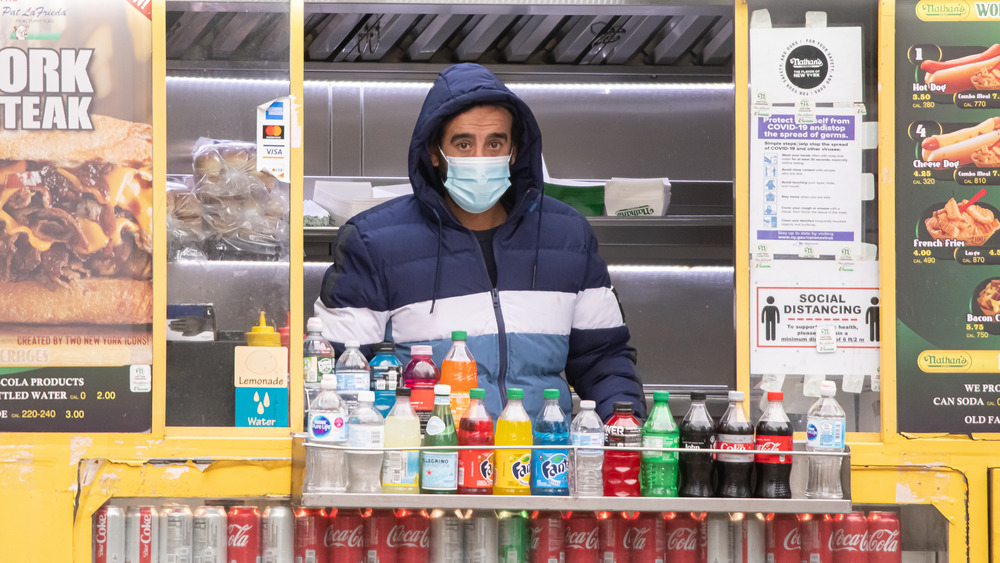The Surprising Way Bulgaria Is Using Hot Dog Trucks To Combat COVID-19
Recently, Bulgaria received their first 9,750 doses of the Pfizer-BioNTech COVID-19 vaccines. While this is welcome news for a country that has been one of the hardest hit by the coronavirus in the EU, with more than 204,080 confirmed cases and 7,835 COVID-related deaths as of this writing, per Johns Hopkins, their unusual choice of transportation for the vaccine might belie its serious nature. Hot dog trucks are being used to distribute the essential vaccine to locations around Bulgaria, accompanied by a police escort to ensure their safe arrival at destinations in different parts of the country.
According to Forbes, the vaccines must be stored at a temperature of -94 degrees Fahrenheit for no more than five days, and Bulgarian health authorities have assured the public that the hot dog trucks meet the vaccine's strict storage requirements. "Bulgaria is not the only country where private logistics companies provide transportation," Kostadin Angelov, the Bulgarian health minister, told the New York Times.
The hot dog truck vaccines have been met with laughter
Despite these assurances, the unorthodox delivery method has raised some eyebrows. The hot dog truck vaccine deliveries have inevitably sparked many jokes and memes on social media, but some health care advocates worry there might be a darker side effect to this unconventional delivery method.
Mariya Sharkova, a health care lawyer, expressed concerns. "It doesn't matter if the trucks have images of hot dogs or Black Angus beef plastered on them. What matters is for the government to strictly follow the distribution and storage regulations...There are many people outside of the anti-vax movement who are hesitant to get vaccinated. Instead of using the vaccine arrival to defuse their fears, the state has become a target of ridicule," she told the New York Times.
Although Angelov, the health minister, assured the public that the vans met all health and safety protocols for vaccine distribution, he promised the next shipment of vaccines would be distributed via a more conventional method of transportation.

